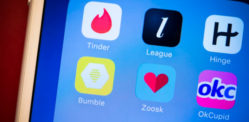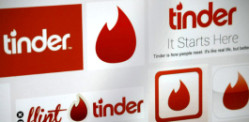"You’re less likely to ignore red flags"
When it comes to our love lives, many singletons are now “stack dating”, which is the practice of scheduling multiple first dates in one day or squeezing them into existing plans.
Think grabbing coffee with one match during a lunch break, meeting another for drinks after work, then heading to dinner with friends.
Also dubbed “errand dating”, the trend is about fitting dates wherever they naturally work in your day, rather than dedicating an entire evening.
Though it may sound callous, the approach has become increasingly popular among younger singles who want to save time while looking for love.
Stack dating is not a new thing.
Speed dating once offered a similar efficiency. But the TikTok generation has reimagined it and made it viral.
According to Tinder’s 2023 Future of Dating report, around half of Gen Z daters look for ways to integrate dating into their schedules. About 32% even admitted to going on a date during their workday.
Social media is filled with “stack dating” stories.
One TikToker said he had a date planned but met a girl at the gym earlier that day, so he rescheduled the first to make time for a second.
A podcast host recalled how his friend booked a date at 7 pm and another at 8:30 pm, and later married the second one.
Yet psychologists warn that the trend may be reducing dating to another task to optimise.
Clinical psychologist Shahrzad Jalali explained:
“Where traditional casual dating leaves emotional space for curiosity and connection, stack dating compresses it.
“It’s not ‘let’s see what unfolds,’ but ‘let’s see what fits into my schedule’.”
Dr Jalali believes that as more daters use AI to help with profiles and texting, trends like stack dating further remove the human element.
But some relationship experts see potential benefits.
Neuropsychologist Sanam Hafeez said:
“You’re less likely to ignore red flags or rush into something just because it feels exciting. It gives you space to see who actually fits into your life instead of trying to make someone fit.”
She added that stack dating can reduce pressure by shifting the focus from impressing one person to exploring multiple possibilities. That relaxed mindset helps keep perspective and reduces the temptation to overanalyse a single date.
Another advantage is reduced premature attachment, which can make daters less anxious and more authentic.
Dr Hafeez noted: “Seeing more than one person helps you avoid overinvesting emotionally in someone before you can tell if you’re actually compatible.”
She also said frequent dating can boost social confidence:
“Each date becomes a low-stakes opportunity to practice honesty, curiosity, and boundaries.
“Think of it like getting reps in the gym – the more you do, the stronger you get.”
There’s also the convenience factor.
Slotting a short date into your day, near your gym or commute route, means you can stay open to romance without rearranging your week.
But experts warn that stack dating has a darker side. Dr Jalali said the approach often makes it difficult to form genuine connections.
She said: “By layering multiple short encounters, the individual maintains control and reduces emotional exposure.
“It’s an efficient system for avoiding rejection or disappointment, but that same efficiency can flatten the depth of human experience.”
Stack dates, which tend to be short, may also lead people to judge too quickly, as Dr Jalali elaborated:
“When every interaction is brief and evaluative, people start losing their capacity to feel moved. This eventually can turn into detachment.”
And while the dating trend aims to save time, it can also drain emotional energy, making the search for romance feel more like a second job.
For some, stack dating might be a playful way to navigate modern romance. For others, it risks turning something intimate into a time management exercise.
In the end, the question remains whether efficiency and emotional depth can truly coexist, or whether love, like time, is something that shouldn’t be rushed.






























































